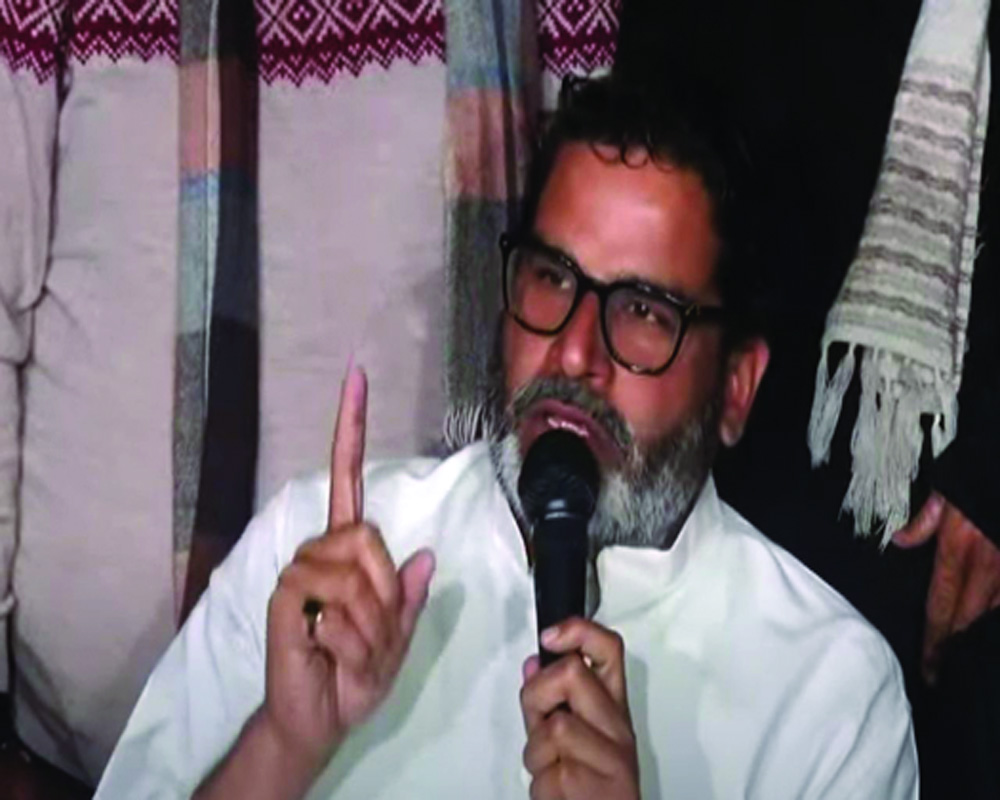As the 2025 assembly elections approach, the big question remains: Can Kishor truly reshape Bihar’s political future, or is his role simply to disrupt opposition unity?
Prashant Kishor, a name synonymous with political strategy, has made his debut in Bihar politics with the launch of his party, Jansuraj. Drawing an analogy to a potter, Kishor likens his work to shaping the best clay into something meaningful, declaring, “We are bringing forward the best people of society. My role is to make this party win. I am in the role of a sutradhar (narrator); I have announced after the formation of the party that I will not run it. The party people will run the party.”
This declaration, however, has done little to quell speculations about his aspirations. Rumors abound that Kishor is vying for the post of Chief Minister, a claim he repeatedly denies. “I am not contesting the elections,” he insists. “I do not feel like contesting, but if the party decides that only I can secure a seat, then it will be a collective decision. I am not bigger than the party.”
Despite his assertions, Kishor’s entry into Bihar politics has stirred discussions about the impact of Jansuraj on the state’s political landscape, particularly in the context of the 2025 assembly elections. Questions loom: will his party weaken the NDA or the INDIA alliance? Political analysts suggest that Kishor, with his background as a strategist for both Prime Minister Narendra Modi and Chief Minister Nitish Kumar, could be a disruptive force. Some even speculate that he might be a BJP-backed “pawn,” designed to fragment opposition votes, a claim fueled by his apparent inability to align with the Congress or RJD leadership.
Kishor’s criticisms of Nitish Kumar’s governance have been particularly sharp. He has lambasted Kumar’s leadership style, though his past affiliations with the BJP have also fueled skepticism. Adding to the intrigue, JDU leaders have dismissed Kishor’s efforts as insignificant.
JDU, meanwhile, continues to champion causes like the nationwide caste census and the “One Nation, One Election” policy. It also plans to hold a workers’ meeting in Nalanda on January 20, 2025, to gauge its position before the elections. JDU’s reliance on caste-based politics, particularly its focus on Mahadalits, underscores its strategy for retaining relevance.
Recognizing the centrality of caste and community dynamics in Bihar politics, Kishor has crafted his approach accordingly. His first major move was targeting the Muslim and backward caste vote banks, which collectively account for 53.8 per cent of the electorate. To solidify his position, he announced plans to field more candidates from Muslim and extremely backward communities in the upcoming elections. The appointment of a Dalit as Jansuraj’s first working president further underscored this strategy.
This decision, however, drew criticism, with some perceiving it as an overt counter to JDU’s Mahadalit card. Kishor’s emphasis on Dalit representation, though a significant gesture, was met with resistance from sections of the political spectrum.
Before launching Jansuraj, Kishor spent two years traveling across Bihar, conducting a padayatra and engaging in public dialogues in villages and towns. His campaign drew heavily from the ideas of Mahatma Gandhi and Rabindranath Tagore, echoing a narrative of grassroots empowerment. However, his advocacy for ending Bihar’s liquor prohibition—a policy closely associated with Nitish Kumar’s governance—has sparked controversy. Critics argue that this stance contradicts Gandhian principles and exposes Kishor to allegations of opportunism.
Despite the criticisms, Kishor’s efforts signal a genuine attempt to address Bihar’s long-standing issues. Bihar has long grappled with challenges like unemployment, poor infrastructure, and rising crime. Kishor positions Jansuraj as a platform to tackle these problems, but whether he can deliver remains to be seen.
Kishor’s focus on marginalised communities, grassroots dialogue, and inclusive leadership sets a distinct tone. However, his political credibility and ability to translate ideas into action will be closely scrutinized.
As the assembly elections approach, the political battlefield in Bihar is becoming increasingly dynamic. JDU’s focus on its traditional voter base and initiatives like the caste census may clash directly with Jansuraj’s appeal to similar demographics. Meanwhile, speculation about Kishor’s BJP connections and his critique of Nitish Kumar suggest that his presence will influence alliances and electoral strategies across the board.
Prashant Kishor’s entry into Bihar politics marks a significant shift. By forming Jansuraj, he has sought to disrupt the status quo and present a new alternative. However, whether he can truly emerge as a transformative leader or will merely fragment votes remains the critical question.
(The writer is a senior journalist; views are personal)
























